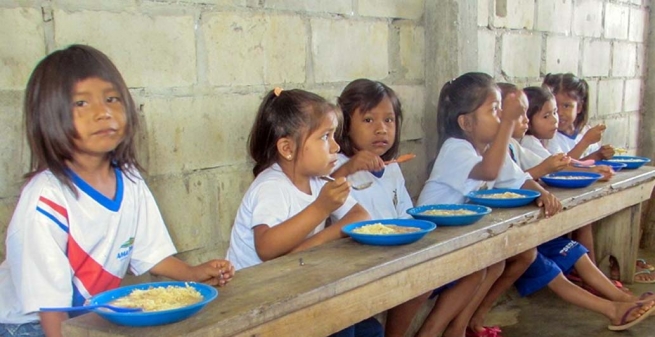Here the Italian Salesian missionary Fr Roberto Cappelletti tries to protect the childhood of children, with the occasional help of several Italian volunteers and in collaboration with the Daughters of Mary Help of Christians. They are the children of underage mothers, forced to leave their homes by their parents on being discovered with pregnancy. Outcast, relegated to the margins of society, these young women are forced to play a parental role without having the tools, completely alone, and without the help of their families of origin.
Abandonment and solitude represent the daily landscape of the children whom the Salesian missionary takes care of, via providing hot meals, helping in their studies and education, in moments of play and reading, providing health care and often also a place to stay for the night.
Meanwhile, the construction work for a family home that can accommodate them comfortably has already started. Thinking of all the needs involved, Fr Cappelletti has planned to equip the house with 50 hammocks: in fact, in the heart of the Amazon forest, hammocks are used, not beds, hammocks being part of the local cultural heritage and are, in fact, the most practical solution on which to find rest.
The simple project of Fr Cappelletti has found the generosity of many. Missioni Don Bosco of Turin has adhered to the proposal and asked to run with the "Rete del Dono" the half-marathon of 18 March promoted by Santander in the Parco del Valentino. 24 runners, both professionals and amateurs, ran to raise awareness and to give their economic contribution to the project called "50 hammocks for 50 little indios" by Fr Cappelletti: all "proud to run for Don Bosco", as one of the marathon runners wrote at their first collaboration with the Salesians.
Currently, funds have been raised for 40 of the 50 necessary hammocks, while Missioni Don Bosco continues to encourage its benefactors to complete the work.
Even with simple means we can counteract the social degradation that so many indigenous peoples suffer. The protection of minorities, of the most isolated ethnic groups, starts with the protection of the little ones.


